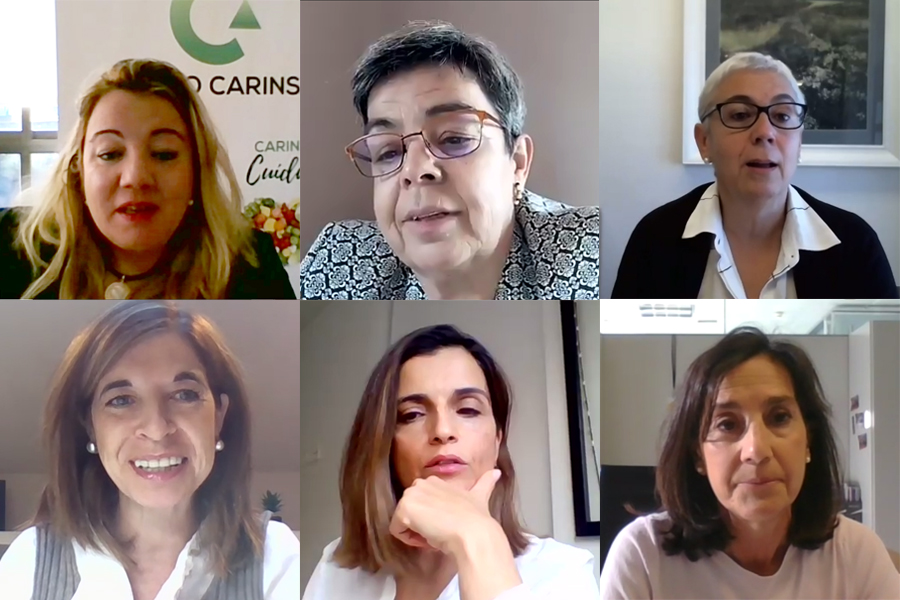“The future is digital and will transform the way we work; innovation must be seen as long-term investment”

An online session held by the Catalan Association of Family Businesses (ASCEF) entitled “The culture of innovation in family businesses” featured a round table with Vanesa Martínez, the CEO of Grupo Carinsa, Mercè Girbau, the President and CEO of the Girbau Group, and Eulalia Alomar, the General Manager of Creu Blanca. The trio shared their experiences of innovation in the family business in a conversation moderated by Rosalía Soler, a partner at Ernst & Young.
The three businesswomen stressed that innovation was “day to day” and said that, despite being on the agenda of their respective companies, innovation and digital transformation have been “driven” by the Covid pandemic. “This has led us to reinvent ourselves, especially in the sectors that have been most affected,” Ms Martínez said. At her side, Ms Alomar explained that “we have innovated in unforeseen aspects, re-adapting techniques“. “The pandemic has had a real impact on us; it has forced us to adapt to the new situation,” Ms Girbau added.
“Innovation has been in our DNA since Grupo Carinsa was founded and this is about long-term investment,” Ms Martínez said. “We observe the work processes in order to apply the big data and thus be more efficient day-to-day, in addition to working on improving energy efficiency and waste management.” She added a maxim that they bear in mind: “If a family business wants to be innovative, leaders have to form teams of talented people and provide them with the necessary tools to innovate constantly.”
“The future will transform the way we work and organisations in all areas,” Ms Girbau said. “It is necessary to commit to innovation in order to add value as a company. We approach the methodology of start-ups, and we develop different products to see how it can be applied to the market,” she explained. The President of the Girbau Group also called on the Public Administration for support “beyond that of a financial type, in order to create ecosystems and a tradition of innovation in society as other countries do.”
Meanwhile, Ms Alomar said that innovation is “day to day“. “Everything will be digital and information management will be essential. Processes have to be streamlined: they are all capable of being improved and we are increasingly heading towards more automation,” the General Manager of Cruz Blanca added. “We are working on two types of change: one to reduce ecological impact, both in terms of electricity consumption and waste management, and another to reduce the impact on the patient, thanks to digitisation, and we are seeking techniques that minimise side effects.”
The session, which enjoyed the collaboration of Ernst & Young, also featured two lectures. The first, entitled “Data as a source of innovation and growth in family businesses”, came from Beatriz Sanz, Advisory Partner of Ernst & Young. The second was “Innovating from tradition: how to preserve the family legacy and ensure the creation of value as a business family” by Cristina Cruz, the Academic Director of IE Center for Families in Business.
Ms Sanz recalled that “the origin of the family business lies in entrepreneurship and innovation.” She added that we can take advantage of the use of Artificial Intelligence “through efficient data management, business problem resolution, technological change and ecological application.” However, she recommended companies “to start small, with a small test to see what happens, how it evolves and thus apply it to other fields in the company.”
For her part, Ms Cruz highlighted the fact that “owners of family businesses have control of more than 50% of innovative companies” in order to combat society’s view that “a family business may be conservative, risk averse and less innovative. Aspects of ours that boost innovation must be transformed into competitive advantages and the negative impact that prevents us from innovating must be reduced,” she concluded.